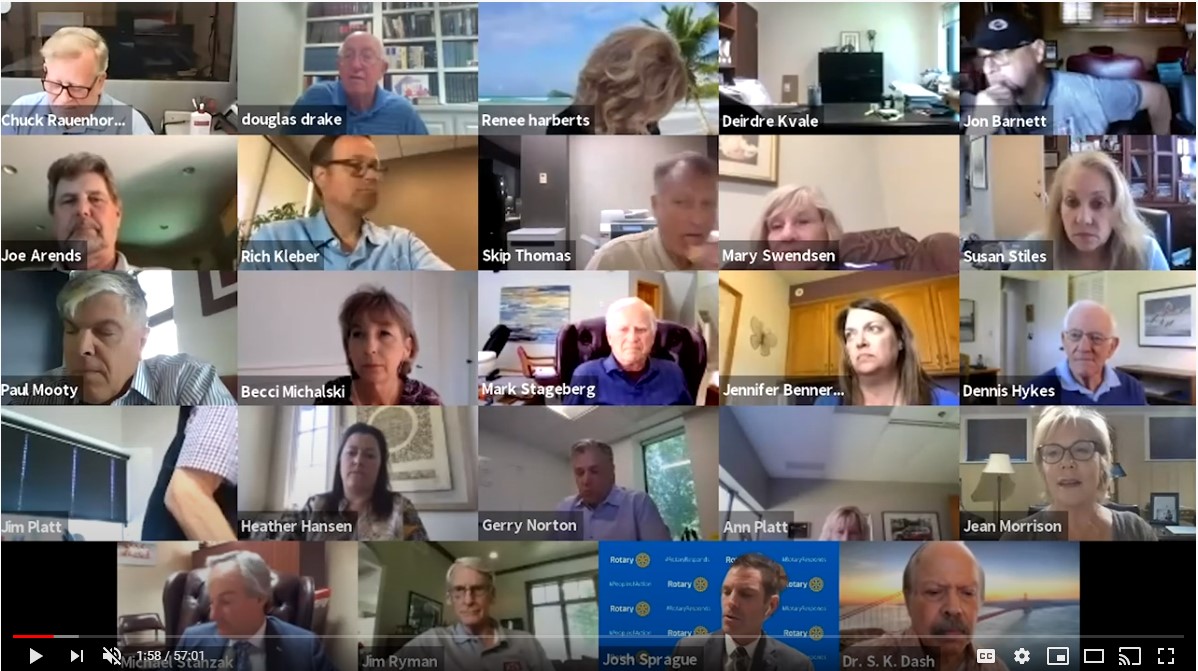
The meeting was called to order in a Zoom format by President, Josh Sprague. A video was presented with Shelly Loberg as she inspired us all about this year’s theme of Rotary Connects the World. Shelly is leaving the International Service Committee as Director as she begins her rotation to become Club President in 4 years. Shelly talked about her motivation and inspiration working in International Service with Edina Rotary and her experience last year in Guatemala on a Service Project. Helping others and “getting the job done” is a benefit she points out of working internationally with Rotary.
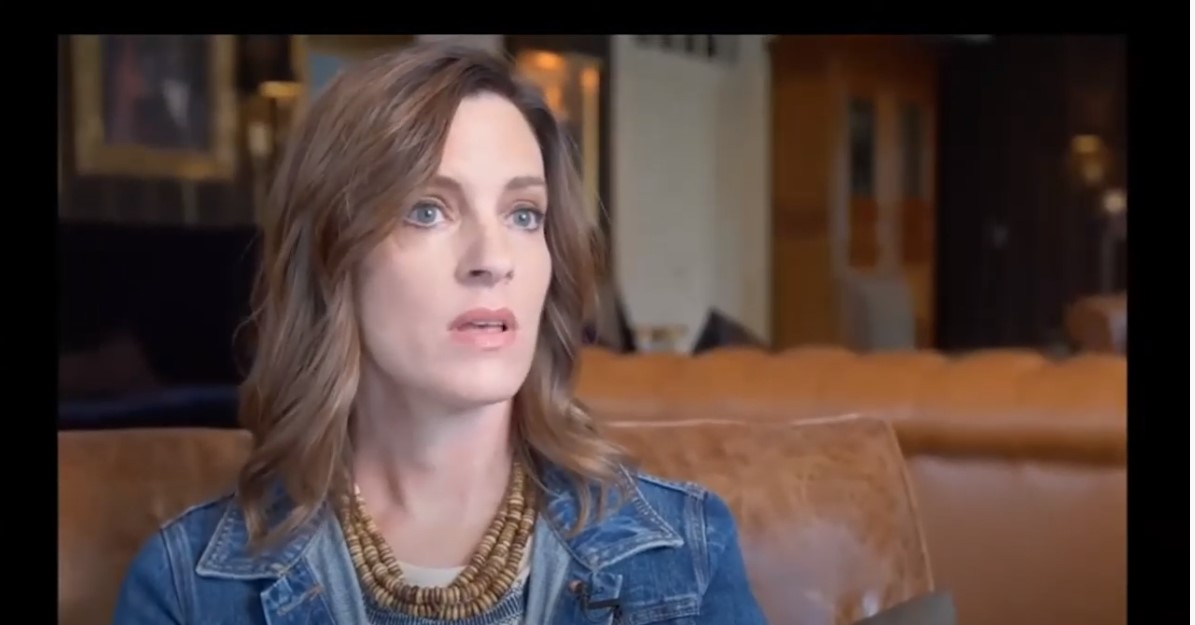

Jean Morrison followed with the Invocation, pledge of allegiance and 4-way test.
Renee Harberts, Social Committee Director introduced the “Wines of Summer” event which is the last social event of the Rotary Year. Renee has tirelessly served as the Social Chair for several years bringing us fun and creative events. She is leaving the Board but will be continuing to be active with social events in the Club.
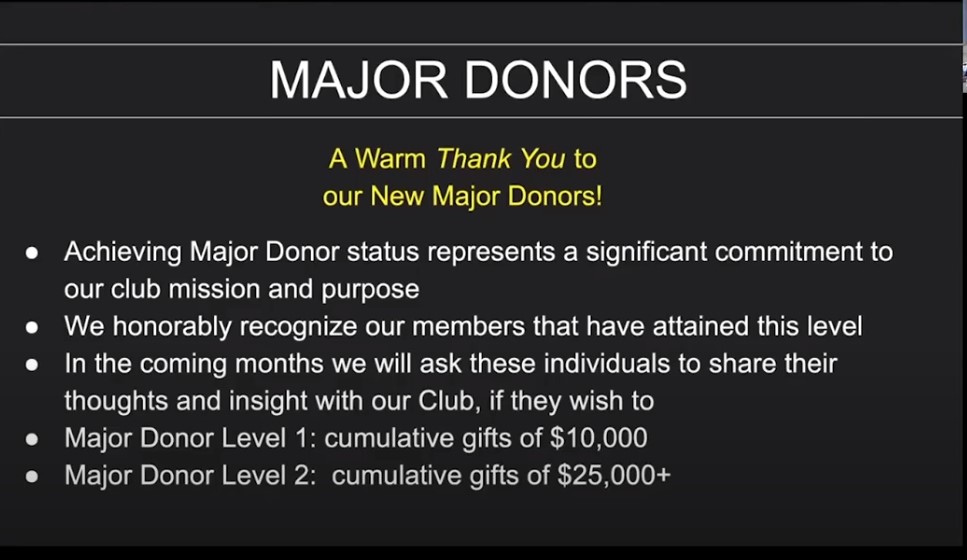
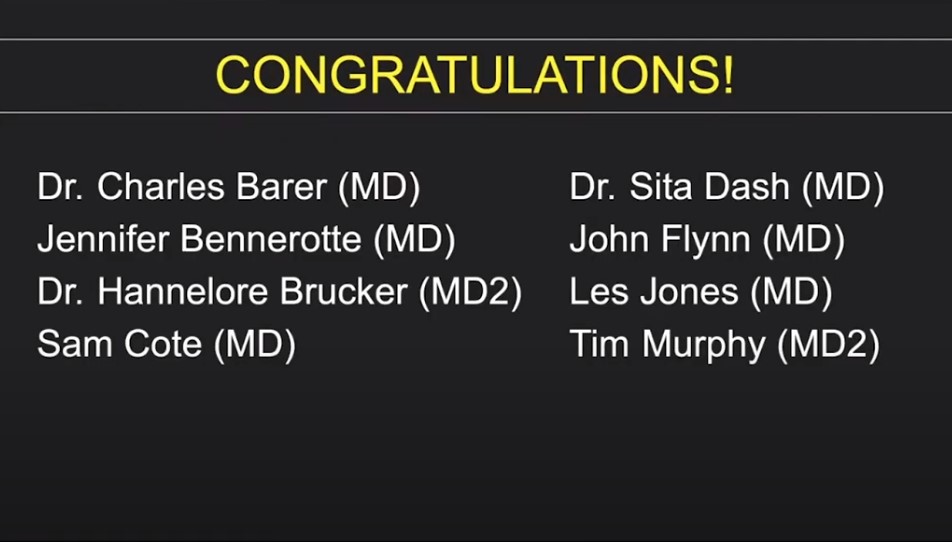
Susan Stiles, the Rotary Foundation Committee reported that donations are coming in as the year is ending. Major donors for this year were recognized.
Member Services informed us that meeting makeups could be done by attending YouTube. A Rotary notification in text form was Rotary 22452. Rotary International Convention was cancelled in Hawaii, but the virtual convention will start on June 20 and end 26th online.
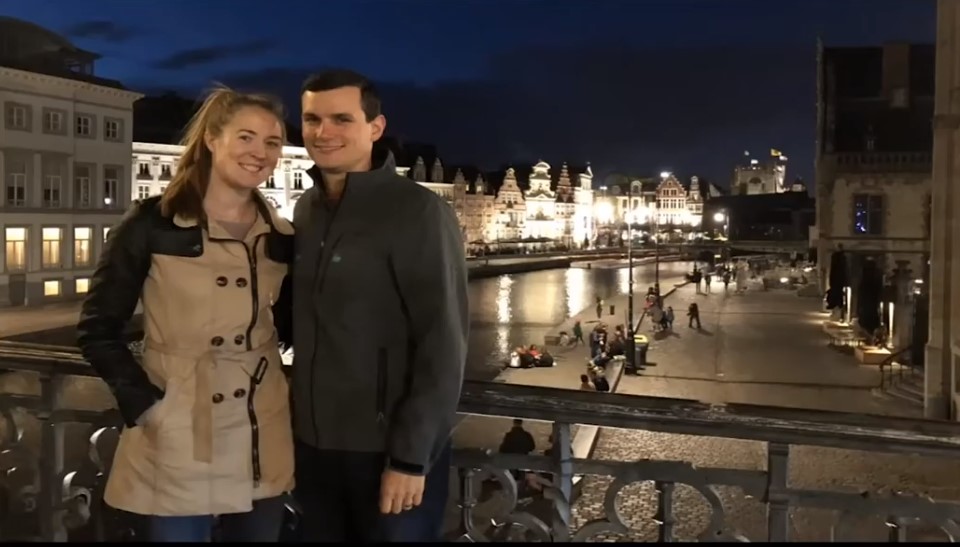
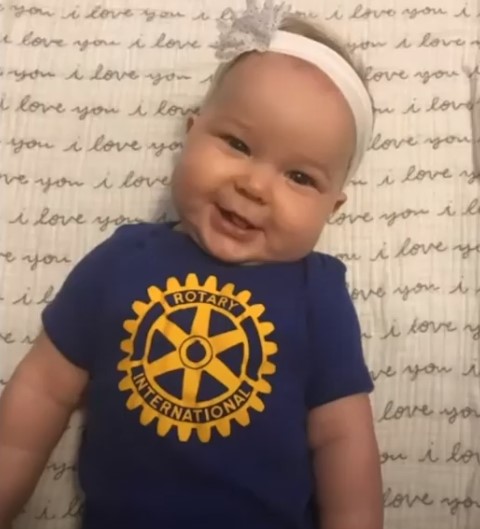
Ryan Wilson did his classification talk.

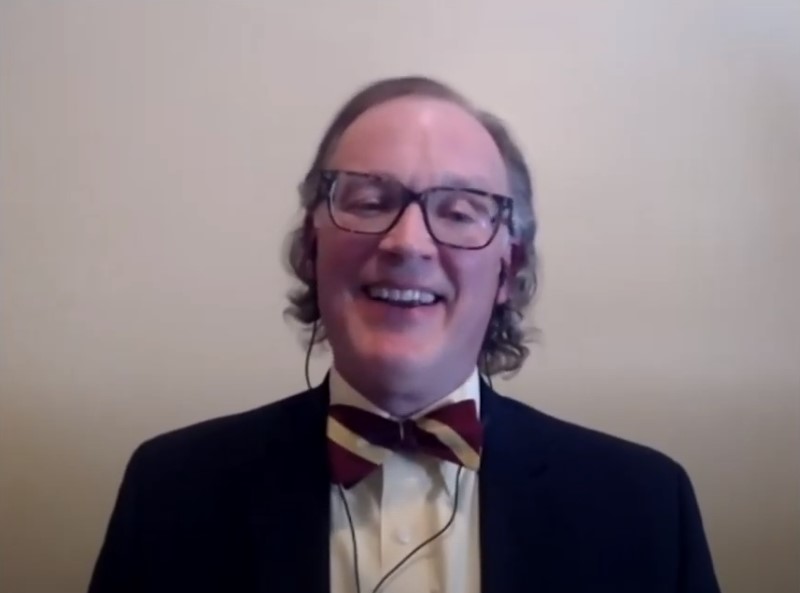
Paul Mooty introduced the speaker. Dr. Park, JD, PhD. From the Carlson School of Management, as he presented a talk entitled Business Ethics and Reopening the Economy. Epidemiologists vs Economists appear to be the controversy of today in that disease control and the economy are both critical. Flatten the curve, saving lives and protecting the most vulnerable is the goal from an epidemiologist’s view while economists may view the current situation as risk versus reward, tradeoffs, and winners/losers. Dr. Rand talked about working together to solve problems as he presented a framework on decision-making that included: Stage Theory on Moral Development, Key Ethical approaches and Stakeholder analysis and impact. Lawrence Kohlberg’s framework on moral development stages of development. He started with the Preconventional Stage: moral reasoning as an avoidance of punishment and what will I get from doing the right thing. The Conventional Stage came next: “follow the crowd and follow the law” (in a very strict sense) mentality. The 1st two stages consider that we are only looking at ourselves. The postconventional ethical approach stage is where we want to be. It states that we consider the “social contract” (utility and justice – in large groups of people). How do we position our strategy and position within the greater society? The stage also includes the universal ethical principle (the golden rule) and justice aspect. Would we accept the solution for ourselves that we are suggesting for others? In other words “taking into account all the stakeholders that would be affected by our actions”. https://www.cs.mcgill.ca/~rwest/wikispeedia/wpcd/wp/k/Kohlberg%2527s_stages_of_moral_development.htm
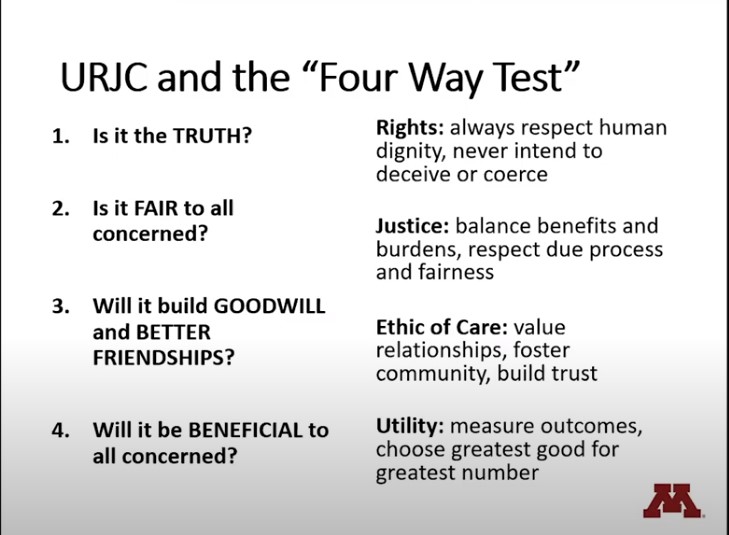
He then presented the model of URJC:
- UTILITY – measuring outcomes as the best result for the greatest numbers (economist’s view) – who gets the most votes? The greatest overall good.
- This may impinge on the RIGHTS – of some others, and human dignity. The epidemiologist’s view in our current situation may be represented in this area. Protecting life is the right of all – but may be challenges. Justice and Care also must be considered in this framework.
- JUSTICE approach is about fair process – due process and fairness based upon the rules set at the outset. Utility, Rights and Justice are logical and based upon rules. Rules that are known to all before participating. But there are times when we have to think about relationships
- CARE valuing relationships and trust. When we think about relationships and value/trust – an analytical following the rules may not fit because of circumstances. This is the ethic of Care.
Go through each of these elements of the URJC as ethics and solutions are considered. He then compared the 4-way test and pointed out its alignment with this ethical model.
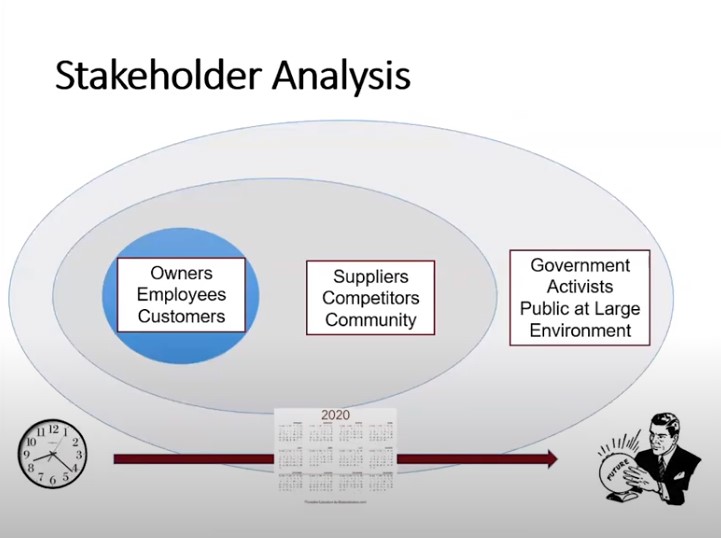
STAKEHOLDERS analysis – thinking about the greater good of society and be sure all are considered as decisions are made. Thinking about the long game is also important with the Covid-19 virus. The circle of influence becomes larger. Trust was discussed at length – recognizing that trust is the most important value of a business.
Conclusion: take the time to think through decisions using the URJC framework – step back, breath and think before making important decisions. “Don’t be in a hurry to make a bad decision”. (i.e. safety protocols, respecting the rights of others, hiding, deceiving – very negative approach). We have relationships and we have to respect them.
